As a prepper, it will always be to your advantage to find items that can be used for multiple purposes.
This includes herbal remedies that you might be considering keeping on-hand for a time when drugs and conventional medical care are no longer available. No matter whether you are concerned about managing health, wellness, or hygiene issues during a relatively short term crisis, or something on a much longer scale, lavender is an excellent herb to grow and keep on-hand.
Here are some ways that you can use lavender as well as a guide to basic forms that can be used for growing it and using it for various purposes.
Relaxing and Calming
There is no question that these difficult times can be unnerving. No matter whether you have a job or you are living on a pension, the economy can, and should be a major concern to you. It does not matter where rising costs come from when you are barely able to afford the basics right now. To add insult to injury, the rapid decline in the safety of the food supply combined with what is shaping up to be a catastrophic growing season may literally be making you wonder where your next meal will come from.
If You See This Plant in Your Backyard Burn It Immediately!
All of these problems combined with laws designed to hinder and prevent prepping are more than enough to make even the most resilient person feel stressed. On the other side of the equation, approximately 1/3 of all people in the United States right now are using some kind of prescription drug for anxiety and panic. If these numbers alone don’t say our society is facing a major stress crisis, nothing does. While lavender may not cure the root cause of stress, panic, and anxiety, it can still help you relax[1]. In fact, lavender has been used for this purpose around the world for centuries. It is also documented to have mood lifting, sedative and relaxing effects in some modern research studies[2]. Some medical providers are also considering using it for the treatment of a wide range of neurological disorders.
If you have any of these conditions, do not forget to ask your doctor before changing your medications or trying an herbal option. Remember, many modern drugs[3] have serious side effects that may get worse for a time if you stop using the drug[4]. They also have primary mechanisms of action that cause disbalances or damage to the tissue they are targeting[5].
It is best to start off by reading as much as you can about all the dangers of the drugs you are using right now and make sure you understand the “evidence based scientific research” that explains the dangers. Next, you will need to discuss these matters with your doctor from a standpoint of this knowledge so that you have the best possible chance of making safe and effective changes.
Here are some other neurological things that lavender has been used to treat over the decades and centuries:
- As a side note, you may also want to do some additional research on CBD or oil made from marijuana as it is now legal to use with a prescription in many states for the treatment of seizure related disorders.
- Improve memory and mental function – this one is especially important if you also have stress combined with learning and memory. Lavender is also being used successfully to help manage symptoms associated with Lavender.
- Lavender also has well known sedative and anesthetic effects.
 Manage Insomnia
Manage Insomnia
Regardless of your age, you are more than likely aware of how long it takes to recover from missing even one single sleep cycle. If you feel drained, irritable, or suffer from a reduction in the quality of your reflexes, it can spell disaster when your mind and body are pressed to the limit by some kind of catastrophic situation. This is just one of many reasons why you may need some kind of temporary aide to help you sleep when there is a suitable time available.
When it comes to the use of lavender for managing insomnia, or even irregular sleep schedules, you can use it as a tea, a bath or massage oil, or infused into the air. Just remember that any sedative herb or drug can still making operating heavy equipment and motor vehicles dangerous. There is no such thing as a sedative effect being somehow safer because it was created by an herbal remedy instead of an allopathic drug. Needless to say, if you use meditation or music to help you fall asleep and stay asleep, you should also take proper precautions to make sure you are past the window where you are more likely to be in an unnaturally sedated state.
Ease Breathing Problems
Right now, the vast majority of people in the United States take breathing for granted. Sadly, these same people don’t realize that increasing pollution and toxins in the food and water are causing asthma and related conditions to increase at an alarming rate. In fact, in less than 10 years (2001 to 2009), the asthma rate has jumped from 1 in 14 people to 1 in 12[6]. This number is even worse in children, where it is estimated that 1 in 10 children suffered from asthma or had an asthma attack in 2009.
As I have noted in other articles, there are both allergic and non-allergic forms of asthma. It is, and remains my contention that many “non-allergic” forms of asthma actually have some kind of immune related response at the bottom of it, and are somewhat allergy related. As a case in point, foods that trigger anxiety and panic can also trigger asthma attacks even though it is unknown if the mechanism is a direct chemical link or the psychological condition itself triggers the asthma attack.
When it comes to managing breathing problems, there is no question that asthma is one of the most serious and deadly breathing related problems you can deal with regardless of what is causing it. Sadly, many people that aren’t concerned about air pollution and food related triggers truly don’t realize that the increasing asthma rates suggests we are all going to be suffering from this ailment sooner than later. While you should always look for and try to manage the root cause of this condition, lavender oil may be of help until you find a more lasting and wellness oriented answer. At least one study on mice shows that lavender reduces airway inflammation and also stops the “excessive” immune response behind the inflammation[7].
Manage Allergies
When people talk about allergies these days, they often recognize the fact that the immune system is attacking something that it perceives as harmful to the body. In the case of bacteria, viruses, and other infections, the success of this attack is what keeps us alive. Interestingly enough, while we look at pathogens as whole entities, the immune system recognizes and binds to proteins, and perhaps other molecules that are on the outer surface of the pathogen. It is also entirely possible that the immune system uses a similar mechanism to recognize malignant cells that are in need of being destroyed.
There are also many molecules that the immune system attacks, however researchers don’t understand why. For example, pollen, airborne pollutants, and specific molecules in various foods aren’t “living” in the sense of bacteria, nor are they massive semi-living replicators like viruses. At this time, we know so little about prions, it’s hard to say what these allergy responses really mean.
No matter whether you are talking about shortness of breath, swollen tongue/throat, rashes, hives, sneezing, headaches, watery eyes, or other signs of an allergic response, it all still comes down to our immune system having what we have been told is an “overreaction” to a “harmless particle”. As I have mentioned in other articles, it is my belief that the immune system is far more accurate in targeting dangerous particles and is, in fact, right to be reacting in a way that gets our attention. Pollutants in the air, water, and food cause birth defects, heart disease, cancer, and many other problems. These are also the molecules that usually don’t cause a deadly allergic response, however they do trigger reactions that we become aware of as an “allergy”. I maintain that instead of blaming our immune system and trying to knock it out, we should be actively looking to remove allergens from our lives, our homes, and the environment.
What has all this got to do with Lavender? In some studies, researchers found out that lavender successfully stops mast cells from releasing histamine. Since histamine makes it easier for white blood cells to exit the circulatory system and enter the tissue, blocking it during an allergic response is crucial to stopping the immune system attack[8]. Regardless of whether you are looking to manage allergic asthma, rashes, hives, or other allergic responses, lavender may be of use to you because it modifies the immune response to whatever is triggering a response.
Do not forget, however, using lavender constantly is no different from using cradle to grave drugs designed to stop allergies. Relief is the not the same thing as a cure. Even if you have fewer side effects, it would still be best to find out what you are allergic to. If you find that you are responding to man made pollutants, they are not the same as natural things like pollen. Since humans made these pollutants, humans can also stop making them. All you have to do is know who is making these things in the first place and refuse to buy their products. Eventually, since they aren’t making money on these or related products, they will stop making them; which will solve your allergy problem.
Antioxidant Teas
Essentially, free radical molecules will bind to anything that has the capacity to share electrons. When this happens within a cell, it can do serious damage to DNA and other parts of the cell. It is thought that when antioxidants are present, free radicals bind to them instead of organelles within the cell. Since cellular functions also include the production of free radicals, it becomes necessary to neutralize as oxidizing molecules as possible with antioxidants.
When it comes to choosing antioxidants, you will soon find out that there are many different kinds that work in different parts of the cell. Therefore, it is necessary to consume many different types so that your body as a broad range of options. Lavender has been shown to have antioxidant properties, including from molecules that are likely behave as such when consumed as food[9]. As with a good bit of scientific research, however, there is some controversy over whether or not the TBARS[10] measuring system is actually a valid metric of whether or not an antioxidant in foods will actually be useful[11].
If you are interested in using lavender tea as an antioxidant, you do not need to start off with essential oil. In fact, if you have fresh lavender growing, you can make the tea using the following recipe:
- Start off by bruising or crushing fresh lavender leaves or flowers. You will need to do this in order to release as much lavender oil as possible into the water. One cup of tea will take about 4 tsp to about 8 oz of water.
- After you boil the water, simply place the lavender in a tea ball.
- Steep the lavender in the water for about 10 minutes.
Lavender and Your Laundry
Did you know that dryer sheets and fabric softeners contain dozens of chemicals[12] that cause cancer, trigger asthma, and increase allergic responses? There is a great deal of evidence that synthetic scents[13] and chemicals have a negative impact on the body and can increase underlying problems[14]. Many people underestimate how dangerous these chemicals are, especially when they are covering up and touching a significant part of the skin all day long. Fortunately, a mixture of lavender and vinegar makes a safe, effective fabric softener. It will also brighten your clothes while the vinegar will remove excessive detergent buildup. There are two ways you can make this mixture:
- First, if you have dried or fresh flowers and leaves available, crush up enough to fill half of the jar you will be using to make the mixture. If you do not have much lavender available, you can adjust this down to 1 part lavender to 4 parts vinegar[15]. Be sure to pack the lavender tightly into the jar. Next, fill the jar with vinegar and cap tightly[16]. Do not use a metal lid as the acid in the vinegar will corrode it. You will need to wait at least three weeks for the lavender to infuse into the vinegar. Placing the jar on a warm or sunny windowsill will increase the amount of lavender released into the vinegar.
- If you want to use lavender vinegar immediately, or don’t have fresh/dried lavender on-hand, you can try using essential oil instead. Just add 2 – 3 drops of lavender essential oil for each cup of vinegar.
In order to use the lavender vinegar in your laundry, simply add it to the fabric softener dispenser in your washing machine; or add it to the water during the last rinse of you are washing by hand. You will need between ½ and ½ cup of lavender vinegar per load of laundry.
Making Lavender Oil for Aromatherapy
Before you begin trying to use lavender for aromatherapy, you will need to start off by figuring out how you plan to get it into the air. There are at least three methods:
- The first and simplest method is to make lavender water. All you need to do is boil some water together and let the lavender buds steep in it overnight. You will need about 2 tablespoons of lavender to a ½ cup of water. Next, use a strainer to separate the lavender buds from the liquid and discard the buds[17]. To use the lavender water, simply pour it into a spray bottle and mist it into the air.
- Next, you can also use a reed diffuser that will release lavender into the air as the liquid evaporates. You can purchase inexpensive reed diffusers, discard the chemical agents in them, and then simply fill the bottle with lavender and a carrier oil. In this case, you can use lighter oils like sunflower or sweet almond oil. Many people also use grain alcohol and water in the diffuser.
- Finally, you can use an atomizer style diffusers. Unlike other methods for getting lavender and other aromatherapy ingredients into the air, this one requires the usage of pure essential oils. Depending on the diffuser type, you may or may not need to add water. If you have a large room or area to cover, then this might be a suitable option for you. Just remember, however, aromatherapy can be just as therapeutic and just as dangerous as any other drug. Inhaling them doesn’t make them safer or reduce their impact on other parts of the body. If anything, the high volume of blood vessels in the lungs and mucus membranes means that molecules inhaled may make it into the bloodstream faster than swallowing and digesting them.
Drying Lavender for Storage and Use
Unlike using lavender directly in tea or oil infusions, your goal is to keep as much oil as possible in the herbal materials while they are drying out. Therefore, in order to dry out lavender, you will not want to crush the leaves or flowers. There are several methods you can use to preserve the oils as much as possible.
- Cut stalks of lavender just before the flowers open. Be sure to cut just above where the leaves are growing, unless you also intend to dry the leaves. Try to leave enough stem so that the leaves will not be damaged as the remaining stalk dries out. It is best to cut lavender first thing in the morning, just after the dew evaporates. Choose a dry, sunny day.
- Next gather the stalks into bunches so that all the flower heads are facing in one direction. Bind them together without crushing the stems and hang the entire bunch upside down to dry. Choose an area that is dark and dry. Make bunches smaller than ¾” so that there is plenty of air flow around the flower heads. It will take 2- 4 weeks for the lavender to dry out completely.
You can also dry lavender in the sun in about 1 week. To use this methods, start off by gathering the lavender and binding it into bunches. Lay the lavender out on a piece of wood in bright sunlight. If you choose to dry lavender outdoors, you will have to protect it from rain. Unlike drying lavender in a dark place, the sun will bleach the lavender buds and turn them into a very pale color.
Find NOW The 3 Most Powerful Remedies That We Lost to History
The fastest way to dry lavender is to use a dehydrator. If you have an electric dehydrator, set it on the herb setting, or the lowest one for the unit. You will know the lavender is completely dry when the flowers become brittle and fall off the stalks easily.
Regardless of the method used to dry the lavender, the buds should fall easily from the stem when you brush against them. At that point, you can store the dried buds away in an airtight container with the stems intact, or separate them from the buds. Keep the container in a cool, dry place away from sunlight.
Growing Lavender Indoors
Now that you know more about how to use lavender, you may be wondering how to grow it indoors. Lavender isn’t especially difficult to grow indoors as long as it has a good sunny windowsill to grow on[18]. If you do not have good lighting, then try using fluorescent lights designed for growing plants indoors. Try to leave the lights on for longer or shorter periods of time depending on the growing season you are trying to mimic. Remember, plants are sensitive to both light duration and quantity.
Try to avoid over watering and water logging as the roots are sensitive to excess moisture. As with many other plants grown indoors or in containers, wait for the soil to be dry to the touch before watering. Avoid waiting so long that the leaves begin to droop. Choose a soil that isn’t especially rich, and leaning towards the alkaline. Ground up eggshells spread on top of the soil make a good fertilizer for this plant no matter whether you are growing it in containers or outside.
Considerations for Growing Lavender Outdoors
Growing lavender outdoor is fairly easy as long as you have a sunny location with well drained soil. Do not add compost to the soil, as lavender prefers relatively poor soil. As with growing this plant indoors, it prefers soil with an alkaline pH. While you will need to water lavender after it is transplanted, and make sure it has enough water during the first two years, it will not need much care after that. In fact, lavender is fairly drought resistant and will do well when many other plants will have problems.
Once lavender is established, you will mainly need to concern yourself with pruning the bushes back on a regular basis. This will promote growth and ensure that the plant remains healthy. It is also very important to keep any eye out for diseases and pests that are likely to be attracted to lavender. This includes spittle bugs, aphids, alfalfa mosaic virus, and white-fly infestations[19].
If lavender plants are watered too much, or are grown in soil with too much compost, they will also be highly susceptible to root rot and root based fungal infections[20]. Plants infected with these diseases will begin to wilt and turn brown. In order to control this problem, you will need to prune off infected leaves and stems,or uproot and discard plants that are in poor condition. If the entire bed of lavender dies off, or a significant portion of it, do not plant more lavender in the same soil or location. It can take many years for fungal spores to finally die off or be eradicated.
The infection will also require treatment with a fungicide. If you decide to go with a commercial brand, it can also kill off good micro organisms in the soil, which will only lead to other kinds of infections attacking your lavender plants. In the end, the plants will only become weaker and not thrive as they should. While vinegar will kill off the fungal infection, however it is also just as likely to kill the plant. Interestingly enough, you can use aspirin or willow tree bark infusions to kill off fungal and mold infections on plants. Simply dissolve the 1 full sized aspirin in a quart of water and then soak the plants with the mixture. Be sure to spray under the leaves and on all plant surfaces above ground[21].
Propagation Methods for Lavender Plants
At this time, you will find it fairly easy to obtain lavender plants that be planted in your garden with little difficulty. There are also many brands of heirloom seeds available that germinate well and will easily grow into strong, healthy, and productive plants. That all being said, if there is a major crisis and you have to restart your lavender bed, it is important to know how to propagate lavender.
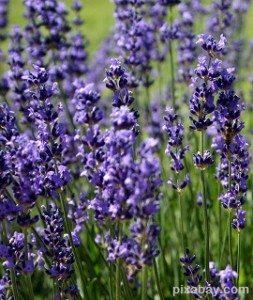
You can also propagate lavender from cuttings taken during the summer months. Simply choose a side shoot from a main stem that doesn’t have flowers on it and cut it where it attaches to the stem. You will need to make sure that you do not damage the heel or tiny lump where the stem joins the main branch. These cuttings will root if you put them in moist soil or in water. If you use a younger stem, it will develop roots in about 2 – 4 weeks. Allow some additional time if the stem is older or has harder wood on it. You do not need root hormone or other substances to spur rooting. Some people recommend setting up plastic covers over the cuttings so that they do not lose as much moisture. Personally, I have never liked this method and use it as little as possible because the plant always suffers from some degree of shock and never seems to be as strong as plants that were raised in open air. Unless I am dealing with a tropical kind of plant that must always have some kind of moisture in the air, I don’t use plastic bag coverings for cuttings or seedlings. The accelerated growth under these conditions only winds up costing the plant later on; in my observation.
Even though cuttings will root faster in water, they will have a harder time with root shock upon transplanting. You must also watch the new roots carefully for signs of root rot. In a sense, lavender is similar to violets and other plants that don’t like to have water logged or excessively wet roots. Once the roots form, the best thing you can do is get them into soil as quickly as possible. As with violets and other plants with similar kinds of root needs, I prefer to root lavender directly in soil. The increased amount of time for roots to form is worth it because I do not have to be concerned with transplant shock at a delicate time in the plant’s development.
Lavender and Your Household Pets
There is a considerable amount of discrepancy over whether lavender is safe to use around pets. Many sources claim that it is safe to keep this plant around cats and dogs, however they may vomit and develop other signs of digestive irritation if they dine on the plant. While many sources claim lavender essential oil is safe for dogs, they also state that dogs tend to be allergic to it. Lavender essential oil is not safe in the oil or air diffused form because they are not able to metabolize some molecules within the lavender.
If you have pet birds, lavender may or may not be safe to use around them. For example, you can use lavender with parrots, but it may not be safe with finches and other birds. That being said, it should also be noted that chemical based air fresheners are also dangerous for pet birds, if not more so. It is also unclear whether or not lavender is safe to use around reptiles.
Personally, I do not recommend using Lavender or any other diffusion, air spray, or air cleaner around aquariums that house fish. Aquariums easily absorb all kinds of chemicals from the air. Because most aquariums are small in relation to the size rooms they are kept in, this means the chemicals sprayed into the air are bound to be concentrated heavily in the aquarium. Since fish are already highly sensitive to many chemicals, even a trace amount of essential oil in the water may make them sick or kill them.
When it comes to safe, effective herbal remedies, you will find that lavender is both diverse in its uses and methods of usage. While this is also one of the few essential oils that can be used directly without dilution, it is still important to know how to use it at less concentrated levels. Now, as in a time of need, you may not have acres of land available to use for making just a few ounces of essential lavender oil. Fortunately, even growing a few plants on your windowsill can be just as useful providing you know how to use each part of the plant for maximum benefit. While most people claim that lavender is safe to grow around pets, it is best to avoid exposing them to essential oils or diffusions of this and other herbs.
Resources
[1] https://www.ncbi.nlm.nih.gov/pmc/articles/PMC3612440/
[2] https://www.ncbi.nlm.nih.gov/pubmed/22612017
[3] https://www.psychologytoday.com/us/blog/inner-source/201107/anxiety-drugs-worth-risking-your-life-0
[4] https://www.theguardian.com/society/2015/may/12/psychiatric-drugs-more-harm-than-good-expert
[5] https://www.cchrint.org/2010/11/07/anti-anxiety-drugs-linked-to-brain-damage-30-years-ago/
[6] https://www.cdc.gov/vitalsigns/asthma/index.html
[7] https://www.ncbi.nlm.nih.gov/pubmed/24909715
[8] https://www.ncbi.nlm.nih.gov/pubmed/10217323
[9] https://www.ncbi.nlm.nih.gov/pmc/articles/PMC5224583/#B19-foods-05-00018
[10] https://www.hindawi.com/journals/jamc/2016/9412767/
[11] https://www.ncbi.nlm.nih.gov/pubmed/28407901
[12] https://www.ncbi.nlm.nih.gov/pubmed/10872633
[13] https://invisibledisabilities.org/ida-books-pamphlets/chemicalsensitivities/whygofragrancefree/
[14] https://www.ncbi.nlm.nih.gov/pmc/articles/PMC1469804/
[15] https://nofussnatural.com/make-lavender-vinegar/
[16] https://everything-lavender.com/lavender-vinegar-recipe.html
[17] https://www.wikihow.com/Make-Lavender-Water
[18] https://www.hgtv.com/outdoors/flowers-and-plants/herbs/growing-lavender-indoors
[19] https://homeguides.sfgate.com/known-pests-lavender-plants-38977.html
[20] https://homeguides.sfgate.com/fungus-lavender-roots-46552.html
[21] https://homesteady.com/info-11368884-mold-aspirin.html





























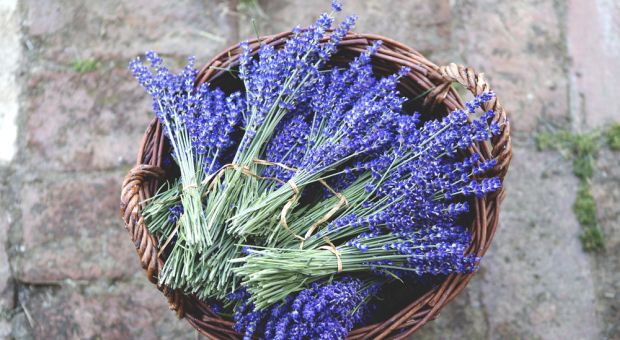
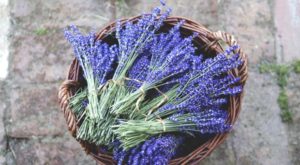
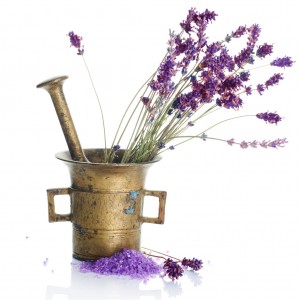
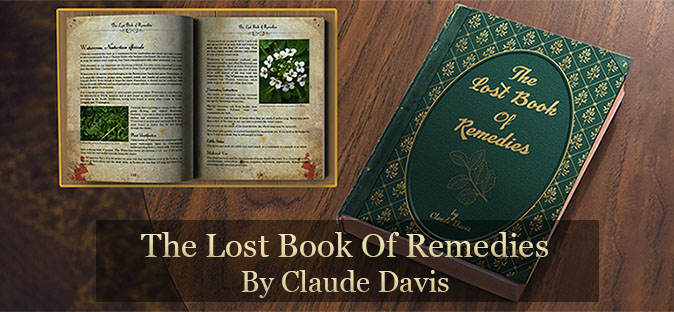






























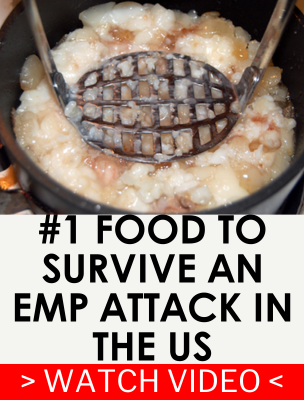

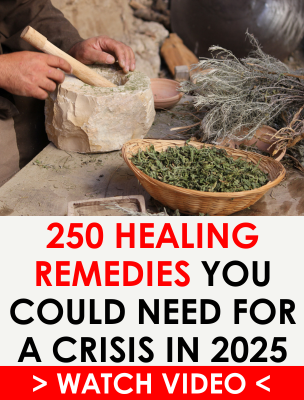
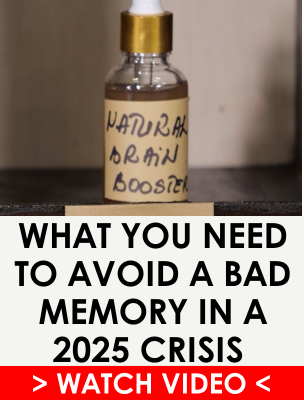
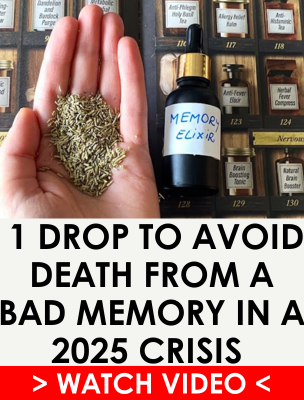


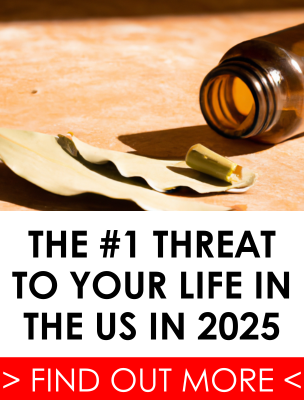
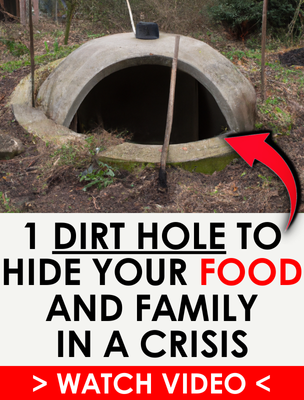





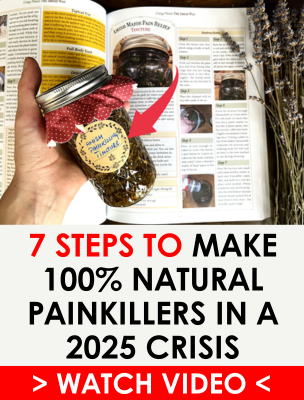
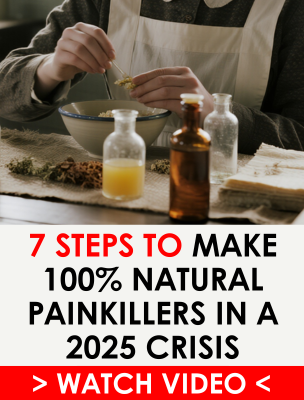
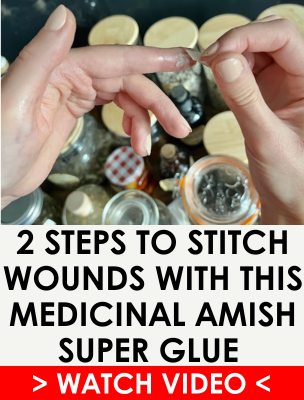
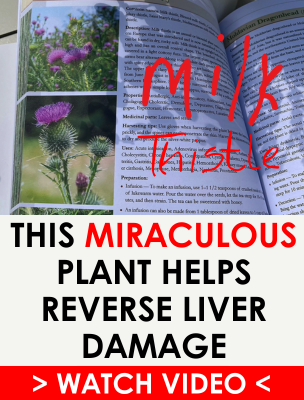

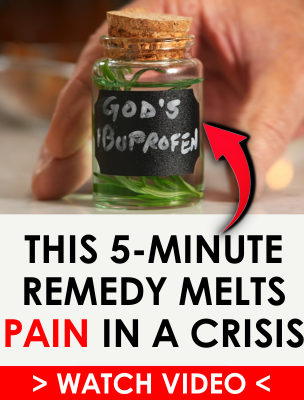




I have used Lavender oil all my life since as a child my grandmother taught me about the uses of natural plants and oils.
That was one reason I became a Doctor of Chiropractic, to teach others about the healing properties of food, plants, and flowers.
According to my grandmother, Lavender oil was used by many on the wagon trains going west for medicinal uses.
Hello Dr Donald Sanders, thank you for reading our articles and for your career of healing our fellows.
Alex, from Survivopedia!
For inactivating mast cells, catnip is superior to lavender. For sneezing, swab out the nasal passages with a clean bruised leaf each.
Lavender binds to estrogen receptors in a manner similar to hops. This makes it antagonistic to testosterone. Use with care on men, unless you have a violent one.
As a onetime nursery employee and herb department buyer, I’ve found that the best way to experience the calming effects of the plant is to, quite literally, pet it: stroke the plant, let the oils adhere to your skin, and breathe the scent. Keeping a plant indoors in a sunny window works well if you can keep it away from pets and kids.
Thank you for your tips and for sharing with our readers.
Alex, from Survivopedia 🙂